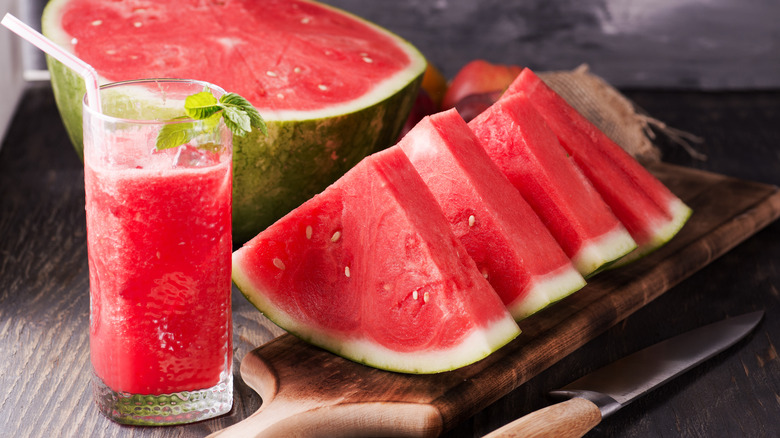How To Get The Most Hydration When Drinking Fruit Juice
In the scorching summer heat, staying hydrated is of utmost importance to maintain our well-being. While water is undoubtedly the go-to beverage for hydration, fruit juice can be a delicious and nutritious alternative. Generally around 85% water and packed with essential vitamins, minerals, and natural sugars, fruit juice offers a refreshing way to quench your thirst while nourishing your body. But there are some things to keep in mind in order to best use fruit juice to hydrate effectively.
When it comes to selecting fruit juice for hydration, opt for natural and freshly squeezed varieties. These contain higher nutrient levels compared to packaged juices that often have added sugars and preservatives. If you do buy bottled juice, look for labels that state more than just "100% juice" as that term can be misleading and experiment with different fruits like oranges, watermelons, or pineapples to discover your preferred flavors.
While fruit juice is a great source of hydration, it's important to remember that some juices can be concentrated and high in sugar content. If you want to maximize hydration and reduce sugar intake, it's advisable to dilute fruit juice with water. A general guideline is to mix equal parts juice and water. This way, you get the best of both worlds — flavorful hydration without excessive sugar.
Benefits and risks of juice
There are benefits to drinking fruit juice or a water-fruit juice hybrid that go beyond hydration, as well. Fruit juice provides a range of essential vitamins and minerals, including vitamin C, potassium, and folate. These nutrients contribute to overall health and aid in hydration. The natural sugars in fruit juice provide an instant energy boost, making it an excellent option for athletes or those needing a quick pick-me-up. However, excessive consumption of fruit juice can lead to weight gain and blood sugar spikes, as reported by Medical News Today.
Individuals with specific dietary needs or medical conditions should be cautious when consuming fruit juice. Diabetics, for instance, should carefully monitor their intake due to the sugar content. Additionally, some fruit juices, such as grapefruit juice, can interfere with certain medications, so it's important to be aware of any potential interactions.
If juice just isn't your thing, then maybe stick with water and add in fresh fruits and veggies to supercharge your hydration. Among the best fruits and vegetables for slaking thirst are cucumbers, oranges, watermelons, and strawberries.
Fruit juice can be a valuable ally in your quest for hydration, offering a delightful and nourishing alternative to plain water. Just keep the above considerations in mind, listen to your body, and enjoy a safe and healthy summer.

